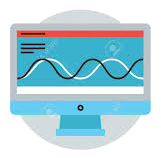Software Requirement Analysis
In-depth software requirement analysis - to make your project a success
SIDSOFT's team of software development experts, technical writers and business analysts come together and astutely analyze your requirements to help you develop an application. We can develop a detailed requirement document which you can use to get quotes for the project or pass on to a development team.
SIDSOFT has extensive software development expertise, so we understand the optimum level of detail required to move software requirement specification to the development phase. We have experience working across a wide range of projects, both large and small across various verticals and industries. We have on our team professionals with expert business analysis skills and experienced Technical writers.
Requirement analysis is very expensive, requiring huge investments in scarce resources, systems and associated processes. SIDSOFT has over 20 years of experience working on software projects of varying scopes. We understand the nuances of capturing and scoping software requirements, and the importance it carries in a software development lifecycle. SIDSOFT's core team of Business Analysts has worked with clients across the globe to effectively infer requirements leading to successful products and services.
Need of Requirements Analysis for Business
It has been determined that one of the primary reasons why software projects fail is because requirements of the project were not captured properly. Current software applications often operate over multiple platforms and across many locations around the globe. Often during the project lifecycle the demands keep varying and this can also have an impact in eliciting proper requirements.
Requirement analysis covers those tasks to determine the needs of a proposed software solution or product, often involving requirements of various stakeholders associated with the solution. Requirement analysis is a key component in the software development lifecycle and is usually the initial step before the project commences.
4 Methods Of Analysis
1.Questionnaire:
2.System Analysis:
 |
"Systems analysis is a problem solving technique that decomposes a system into its component pieces for the purpose of the studying how well those component parts work and interact to accomplish their purpose".
According to the Merriam-Webster dictionary, systems analysis is "the process of studying a procedure or business in order to identify its goals and purposes and create systems and procedures that will achieve them in an efficient way".
Analysis and synthesis, as scientific methods, always go hand in hand; they complement one another. Every synthesis is built upon the results of a preceding analysis, and every analysis requires a subsequent synthesis in order to verify and correct its results. This field is closely related to requirements analysis or operations research. It is also "an explicit formal inquiry carried out to help someone (referred to as the decision maker) identify a better course of action and make a better decision than she might otherwise have made." |
3.Data Input And Output:
4.Concept Development:

|
Concept development is a set of activities that are carried out early in the systems engineering life cycle to collect and prioritize operational needs and challenges, develop alternative concepts to meet the needs, and select a preferred one as the basis for subsequent system or capability development and implementation.Concept development takes place early in the systems engineering life cycle.
The success of the subsequent development of a system or capability can be critically dependent on the soundness of the foundation that is laid during the concept development stage. In their definitions of concept development, Kossiakoff and Sweet highlight phases of needs analysis (valid need and practical approach), concept exploration (performance to meet the need, feasible cost-effective approach), and concept definition (key characteristics that balance capability, operational life, and cost).
|
concept development is described as four activities that identify and characterize user needs:
-
Operational Needs Assessment—The application of operational experience to identify and characterize gaps in existing capabilities that are significant impediments to achieving the mission area objectives.
-
Concept of Operations—A description of a proposed system characteristics in terms of the needs it will fulfill from a user's perspective.
-
Operational Requirements—Statements that formally, unambiguously, and as completely as possible, identify the essential capabilities and associated performance measures.
-
High-Level Conceptual Definition—A clear description or model of the characteristics or attributes needed to address a specific set of requirements or capabilities.
Our Team
Our expert business analysts get involved from the first stage of Requirement Analysis at the start of the Software Development Life Cycle (SDLC). The BAs or Business Analysts understand the customer's business and the possibilities and restrictions of technology. The meetings are held at the customer's offices to ensure all the details are captured and the business analysts get a firsthand experience of experiencing the current workflow/legacy software. When in-person meetings at the customer location are not possible, they conduct online meetings, screen sharing and looking at scanned documents etc.
Once the initial requirement gathering has been completed, the Business Analysts along with the Technical writers come up with the document identifying clear, unambiguous requirements that can be understood by the customers as well as the development team.
- SIDSOFT's business analysts conduct a series of interviews with the project owners, the users who will be using the software, the technical team who will maintain the IT infrastructure etc. to know the complete ecosystem in which the software will operate
- The business analyst will also study other software that the new software that is being built will have to interface with, but limit the detailed study specific to the interfacing components
- They also look for best practices (if available) for developing such software
Software Requirement Analysis to SIDSOFT
SIDSOFT's industry experience and technical expertise will help you develop robust requirements specification taking into account scalability and adaptability of the proposed software solution.